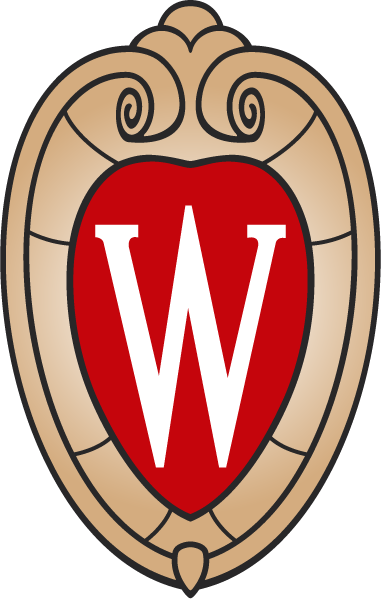
Summary
Watch this short video about why our online Language program is one of the best in the country!
This practical low-intermediate course (A2.1), developed fully by UW–Madison for adult language learners, explores the cultural richness of the Spanish-speaking world, while growing your speaking and comprehension skills. Learn to discuss past events and express opinions with real-life Spanish.
Our unique materials allow you to listen to the voices and stories of speakers from more than 10 different Spanish-speaking countries. A proven communicative approach emphasizes speaking competency while also building skills in listening, reading and writing. See Outline for complete details. All materials included.
Prerequisite: Spanish 2 or equivalent.
Find out if this is the right level for you with these placement tests: Spanish 2 self-placement test, Spanish 3 self-placement test.
Course format
You will practice speaking in weekly one-hour online sessions led by an experienced instructor, with a maximum of 14 participants.
The live online sessions begin one week after the scheduled course start date to allow time to work through the first unit of learning material in preparation for the live conversation practice.
Online course materials introduce new grammar and vocabulary and teach pronunciation, listening, and reading skills through videos, audio, and interactive exercises. Budget 3-4 hours a week to work through the online asynchronous content.
Course materials become available online on the scheduled course start date and remain accessible for one month after the course ends.
Want to know more about learning a language online? Read Dr. Julie Dahl's blog post about our online course format.
A printable workbook (PDF) is included in the price. All other materials are available through the course platform.
Sections anticipated for fall 2025 (See Upcoming Dates for open sections and more detail):
Tuesdays, Aug. 19–Oct. 28, 5:30–6:30 p.m. CT
Wednesdays, Sept. 3–Nov. 12, 5:30–6:30 p.m. CT
Tuesdays, Sept. 9–Nov. 18, 8:30–6:30 a.m. CT
Wednesdays, Sept. 24–Dec. 10, 5:30–6:30 p.m. CT (No virtual conversation on Nov. 26)
Course outline
Course outline
Below are the main themes and outcomes for each unit. Each unit also contains teaching videos, 10-15 listening activities, an extended reading activity, practical exercises and cultural information related to the unit theme.
Unidad 1: ¡A conocernos!
- Review conversations for getting to know people
- Common Spanish commands
- Irregular gerunds
- Using llevar to express duration
- Review common irregular verbs in the present tense
- Reading: La costumbre de la siesta
Unidad 2: ¡A aprender!
- Vocabulary: parts of speech
- Discussing study habits and learning strategies
- Going deeper with gustar and similar verbs
- Regular verbs in simple past tense (el pretérito)
- Giving opinions: opinar, creer, pensar, deber
- Reading: Ricardo Arjona: una vida imposible de definir
Unidad 3: ¡A trabajar!
- Vocabulary: workplace
- Discussing where you like to work and what tools you need to work well
- Direct object pronouns
- Common expressions that use direct object pronouns
- Irregular verbs in the preterite
- Reading: La historia de una inmigrante
Unidad 4: ¡A viajar!
- Vocabulary: travel and housing
- Discussing travel preferences
- Understanding directions
- Describing past trips with the preterite
- Polite expressions for asking for information
- Contrast llevar and traer
- Contrast ir and venir
- Reading: Voy de viaje (una carta)
Unidad 5: ¡A repasar!
- Prepositions of place
- Impersonal se
- Personal a
- Review Unidades 1-4
Unidad 6: ¡A relajarnos!
- Vocabulary: free time
- Discussing ways to relax
- Going deeper with reflexive verbs
- Discussing changes in emotions
- Contrasting demonstratives: este, ese, aquel
- Reading: El poder de la música de Gustavo Dudamel
Unidad 7: ¡A charlar!
- Vocabulary: chatting and informal conversations
- Discussing different ways to communicate
- Indirect object pronouns
- Forming adverbs with –mente
- Giving opinions: (no) estar de acuerdo
- Reading: La cena es para disfrutarla
Unidad 8: ¡A tapear!
- Vocabulary: food and ordering in restaurants
- Discussing common Spanish tapas
- Present perfect tense
- Regular and irregular participles
- Contrasting indefinites: algo, alguno, alguien
- Reading: La paella: un plato que provoca mucho debate
Unidad 9: ¡A comprar en el barrio!
- Vocabulary: small shops and local businesses
- Discuss shopping and operating hours
- Using hace…que to discuss how long something has been going on
- Using hace to discuss how long ago something happened
- Time structures with desde
- Reading: Jubilarse en Cuenca, Ecuador
Unidad 10: ¡A terminar!
- Discussing moments in the future
- Review Unidades 6-10
Earn Continuing Education Hours
By participating in this class you will earn:
| Instructional Hours | 35 |
| University of Wisconsin Continuing Education Units | 3.5 |
